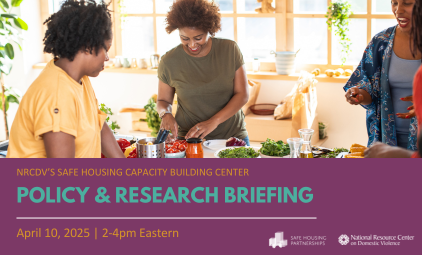Religion is a personal and institutional reality in the lives of the majority of the population in the U.S., so it is no surprise that religious teaching and affiliation provide a significant context for many women as they address experiences of victimization. Through texts, traditions, teachings and doctrine, religious communities and institutions convey values and belief systems to their members. & In addition, members often have direct support or counseling relationships with religious leaders who may provide guidance or instruction. Religious texts and teachings can serve as resources to assist those who have experienced abuse in finding safety and in the process of healing. & Yet, religion also can be misused to excuse or condone abusive behavior. In the context of violence against women, religious teachings and communities will play a role; they will never be neutral.
This document covers some of the basic issues and questions that confront religiously identified women who have experienced abuse. The reality is that regardless of the particular religious affiliation, alongside the trauma of violence, a majority of women will be dealing with some aspect of religious beliefs and teachings which will serve either as a resource or a roadblock (Fortune, 1987).
The task for both religious and secular leadership is twofold: 1) to recognize that religious beliefs, texts, and teachings can serve both as roadblocks and as resources for victims of violence and 2) to deepen our examination of religious texts and teachings and explore new interpretations so that we minimize the roadblocks and maximize the resources for women. No woman should ever be forced to choose between safety and her religious community or tradition. She should be able to access the resources of both community-based advocacy and shelter and faith-based support and counsel.
To adequately respond to the needs of battered women and rape victims, it is imperative that clergy learn about violence against women and reach out to secular advocates and services. Likewise, it is imperative that secular advocates and counselors appreciate the importance of women's religious backgrounds and reach out to clergy and religious groups to find resources to meet the needs of victims. Religious leaders also can utilize their positions as community leaders to help shape the discussion of issues concerning violence against women.
| Attachment | Size |
|---|---|
| Violence Against Women and the Role of Religion | 54.27 KB |














